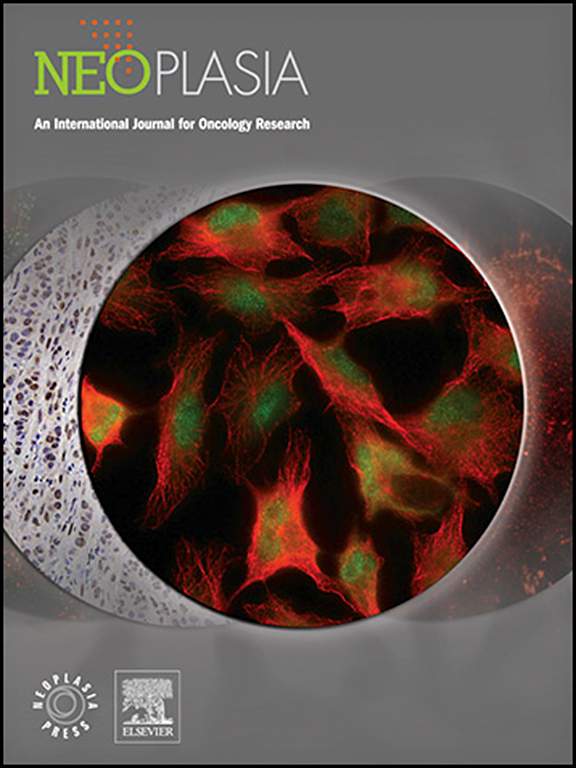Targeting lysosomal protease CTSL promotes anti-tumor immunity and sensitizes HNSCC to PD-1 blockade by stabilizing PDK1 and activating Akt–PD-L1 axis
IF 7.7
2区 医学
Q1 Biochemistry, Genetics and Molecular Biology
引用次数: 0
Abstract
Cathepsin L (CTSL) is expressed in head and neck squamous cell carcinoma (HNSCC), yet its role in immune escape is unclear. Here we show that CTSL directly binds PDK1, blocks its ubiquitin and restrains NEDD4L-mediated ubiquitination, thereby stabilizing PDK1, sustaining AKT phosphorylation, and increasing PD-L1 on tumor cells. This establishes a non-proteolytic scaffolding function, and suppresses tumor growth in xenograft and immunocompetent mouse models; these effects synergize with anti-PD-1 therapy. Clinically, high CTSL expression correlates with increased PD-L1, scarce CD8+ T-cell infiltration, and poor prognosis in multiple HNSCC cohorts. Collectively, our data identify CTSL as a key driver of PD-L1-dependent immune evasion through the CTSL–PDK1–AKT axis and highlight CTSL inhibition as a promising therapeutic strategy and predictive biomarker for PD-1/PD-L1 blockade in HNSCC.
靶向溶酶体蛋白酶CTSL通过稳定PDK1和激活Akt-PD-L1轴,促进抗肿瘤免疫,并使HNSCC对PD-1阻断增敏。
组织蛋白酶L (CTSL)在头颈部鳞状细胞癌(HNSCC)中表达,但其在免疫逃逸中的作用尚不清楚。本研究表明,CTSL直接结合PDK1,阻断其泛素,抑制nedd4l介导的泛素化,从而稳定PDK1,维持AKT磷酸化,增加肿瘤细胞上的PD-L1。这建立了非蛋白水解支架功能,并抑制异种移植物和免疫活性小鼠模型中的肿瘤生长;这些作用与抗pd -1治疗协同作用。临床上,在多个HNSCC队列中,CTSL高表达与PD-L1升高、CD8+ t细胞浸润稀少、预后不良相关。总之,我们的数据确定CTSL通过CTSL- pdk1 - akt轴是PD-L1依赖性免疫逃避的关键驱动因素,并强调CTSL抑制是HNSCC中PD-1/PD-L1阻断的一种有希望的治疗策略和预测性生物标志物。
本文章由计算机程序翻译,如有差异,请以英文原文为准。
求助全文
约1分钟内获得全文
求助全文
来源期刊

Neoplasia
医学-肿瘤学
CiteScore
9.20
自引率
2.10%
发文量
82
审稿时长
26 days
期刊介绍:
Neoplasia publishes the results of novel investigations in all areas of oncology research. The title Neoplasia was chosen to convey the journal’s breadth, which encompasses the traditional disciplines of cancer research as well as emerging fields and interdisciplinary investigations. Neoplasia is interested in studies describing new molecular and genetic findings relating to the neoplastic phenotype and in laboratory and clinical studies demonstrating creative applications of advances in the basic sciences to risk assessment, prognostic indications, detection, diagnosis, and treatment. In addition to regular Research Reports, Neoplasia also publishes Reviews and Meeting Reports. Neoplasia is committed to ensuring a thorough, fair, and rapid review and publication schedule to further its mission of serving both the scientific and clinical communities by disseminating important data and ideas in cancer research.
 求助内容:
求助内容: 应助结果提醒方式:
应助结果提醒方式:


